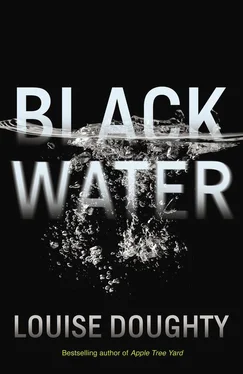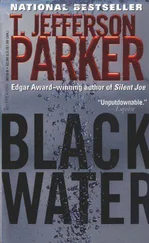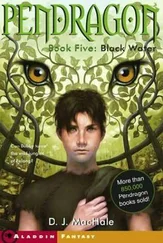Dawn is a promise. Daylight comes softly — so softly, in fact, it is impossible to pinpoint the exact moment when it comes. There. .? And, there. .? It is infinitesimally slow yet comes at once: that is the mystery of it. You are lying in an irrigation ditch, stretched flat in order to submerge yourself as much as possible, with only half your face turned upwards so that you can breathe, keeping your breath as shallow as possible while still keeping yourself alive, knowing that each second of being alive may be your last because the men with flares and machetes are only a few metres away and discovery is possible at any moment. Your muscles cramp repeatedly in water that isn’t freezing but has frozen your limbs nonetheless. Your shoulder is pressed against a stone — but even shifting a little to relieve that pain might create a small ripple that would be spotted. Mud has soaked your clothing and an insect of some sort is inside your trouser leg, burrowing for a new home, but the worst of the pain is in your neck, as you hold your head turned to one side in order to breathe. Worst of all is what your mind is doing. It is thinking so hard about what you must do and not do in order to avoid being discovered that it is as if you are screaming aloud. You cannot believe the clamour of your thoughts will not betray you, bring the men to you; now, and now. And it goes on for hours.
And then, softly, it comes. It comes with the birds: the outlier birds, cheep, cheep , such a tiny, hopeful sound. The first hint of grey appears at the edges of the sky — you think it does, you can’t be sure — and, then, after a bit of tuning up, the whole chorus breaks out, the birds’ triumphant orchestra, the musical holler of it all, because however black the night has been they are still there and they cry out and then comes distant cock-crowing, dog-barking, and all at once, yes, the sky is grey and lightening by the minute, and you turn in the ditch, stiff and frozen to the core, and lever yourself up slowly on one elbow, in pain, covered in mud, and you are still afraid but now it is light enough to see across the rice field, growing greener by the minute. The men with machetes have gone and, unbelievably — there are no words to describe it — you are still alive.
He was sitting on the veranda of his hut, smoking, and watching dawn break across the valley above the Ayung River. The steep wall of palm trees emerged from the dark, grey at first, then lighter and lighter but still monochrome, then magically green. The call of birds in the trees; the humming stillness of the air; it was there. It had always been there. And here was the thing both mysterious and obvious, he thought: the relentlessness of dawn, the fact that whatever had occurred in the hours of darkness, the light came and illuminated it all.
After they had killed him, it would be silent inside the hut. His corpse would lie in the pitch black for a while. There he would be; motionless, unbreathing, alone. As dawn broke, the scene inside the hut would become colourised. The light would reveal that his skin had been rendered ashen by death. There would be a pool of blood, already oxidising, dark against the wooden floor — or more livid, perhaps, if he was lying on the white sheets of his bed. He thought of Kadek arriving that morning, finding the shutters smashed and heavy doors ajar and entering, slowly and carefully, surveying the scene. They would mutilate him, the boys. They would feel the need to kill him more than once. A gaping neck, limbs detached: he didn’t want Kadek to have images like that in his head. Kadek wasn’t even born when the massacres happened in 1965.
It was the pictures, the pictures in your head — you never escaped them. He knew that now.
He finished the kretek and held the stub for a while between his fingers, then rose and took the two steps to the edge of the veranda, leaning his elbows on it and looking out over the valley.
‘Smoking first thing?’
Rita stood in the doorway behind him, dressed only in her underwear and one of his shirts, unbuttoned to her waist and crumpled. Her face was pale and tired, a little puffy from sleep. She smiled and stepped over the threshold.
He glanced to the left. There was no sign of Kadek as yet. He reached out an arm and drew her to him, positioning her so she faced outwards to look at the valley, then standing behind her with his arms wrapped round her, pressing her against the wooden rail. They stood like that for a while, then he lifted his hand, cleared her hair from where it was tangled with the shirt collar, kissed the back of her neck.
‘Thank you for telling me,’ she said, softly. ‘It was a gift, from you, I think.’
He didn’t reply. The previous night, he had told her about ’65: I was a young man; I was a courier; I delivered a list of names. The Americans drew up lists of thousands of Communists or suspected Communists and then they gave those lists to the Indonesian military command and those people were taken out of their homes with their families and they were tortured and killed. I was one of the people who facilitated that process. I was just doing my job, you could say, but unlike a lot of people, I had an opportunity to not do my job. I spent a night in a shack by the black water of a Jakarta canal and in the chaos of that time it would have been easy to lose the particular list I was carrying; I had been caught up in a riot, after all. I would have returned home a failure but nobody would have known that I had lost it deliberately, no real harm would have come to me. Maybe it would have made a difference; maybe not. But I didn’t throw the list into the canal. I delivered it as I had been told to do, and those people were almost certainly rounded up the following day, while I was sitting having a beer with a man called Abang and watching the Bali Beach Hotel being built and feeling grateful to be off Java.
‘You were a spy?’ she had asked.
‘No, spies work for governments. People like me get hired to do the jobs that governments don’t want to give their spies, or don’t want to get caught giving them. We work for anyone, mostly, we work for oil companies, mining companies, banks.’
‘Mercenaries, then.’
‘My firm would be very offended if you called them that. It’s a lot more sophisticated than that, well it is now, back then, it was the Wild West.’
He had not told her about his visit to Komang, or what had happened in the night that followed.
He had told her about going home to Holland afterwards and having a breakdown, about leaving his company and living in the countryside for a while. He had not told her that, four years later, he went back to work for the same firm, that he had worked for them at a desk job ever since. Once you were in, you were in. He was hardly going to retrain as a schoolteacher or dentist.
He had told her about his years in Los Angeles, the time with Poppa and Nina and Michael and his mother. He had told her that his little brother had drowned — he had not told her that Bud had only been floating in the pool of icy water because he had dared him to do it.
He had told her his mother had been an alcoholic: he had not told her she was still alive. He had told her about his short-lived marriage to Francisca but not how recent it was or that they had had a baby — and, somehow, all these half-truths had combined in his head to form something coherent, whole, something he could maintain, if he stayed with this woman — the trick was to forget that you were lying.
‘Why did you come back?’ she had asked.
People talked about the past as if it was a thing, an object: the past , like the box or the house or the tree — as if it was solid and singular. But the past wasn’t an object with boundaries but something fluid and continuous, like a river. Nobody had one past. In 1965 he remembered 1950 in a certain way, and now in 1998, he remembered 1965 differently from how it was and 1950 differently from how he had remembered it in 1965. It was like standing in a box of mirrors and turning to see your reflection multiplied back and forth at you in endless iterations — except, in his case, each reflection was slightly different.
Читать дальше












